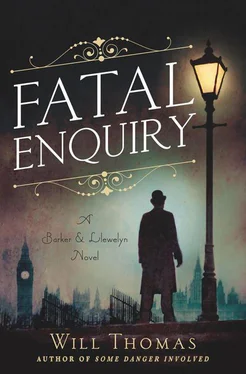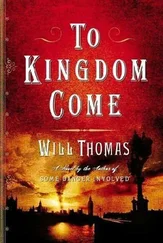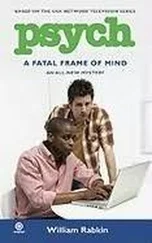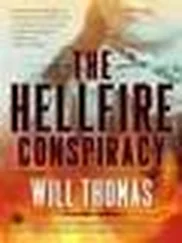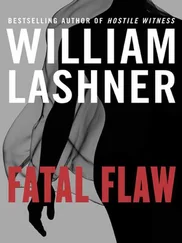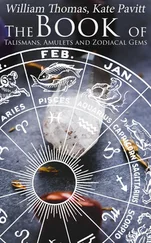Will Thomas - Fatal Enquiry
Здесь есть возможность читать онлайн «Will Thomas - Fatal Enquiry» весь текст электронной книги совершенно бесплатно (целиком полную версию без сокращений). В некоторых случаях можно слушать аудио, скачать через торрент в формате fb2 и присутствует краткое содержание. Жанр: Исторический детектив, на английском языке. Описание произведения, (предисловие) а так же отзывы посетителей доступны на портале библиотеки ЛибКат.
- Название:Fatal Enquiry
- Автор:
- Жанр:
- Год:неизвестен
- ISBN:нет данных
- Рейтинг книги:4 / 5. Голосов: 1
-
Избранное:Добавить в избранное
- Отзывы:
-
Ваша оценка:
- 80
- 1
- 2
- 3
- 4
- 5
Fatal Enquiry: краткое содержание, описание и аннотация
Предлагаем к чтению аннотацию, описание, краткое содержание или предисловие (зависит от того, что написал сам автор книги «Fatal Enquiry»). Если вы не нашли необходимую информацию о книге — напишите в комментариях, мы постараемся отыскать её.
Fatal Enquiry — читать онлайн бесплатно полную книгу (весь текст) целиком
Ниже представлен текст книги, разбитый по страницам. Система сохранения места последней прочитанной страницы, позволяет с удобством читать онлайн бесплатно книгу «Fatal Enquiry», без необходимости каждый раз заново искать на чём Вы остановились. Поставьте закладку, и сможете в любой момент перейти на страницу, на которой закончили чтение.
Интервал:
Закладка:
Here Barker clamped his jaw shut. Sometimes it seems as if he has a daily limit to his conversation and one cannot get another word out of him. I thanked him and went to my cabin, knowing he would call me when he needed me. It did not take long.
An hour later, Barker came into my cabin.
“Are you ready, Thomas? We’ve got an appointment to keep.”
I’d gone back to my berth to digest the story he’d spun. When he entered, he had tied a scarf around his neck which, with the eye patch and stubble, gave him a piratical cast.
“Where are we going?” I asked.
“Westminster Abbey.”
“That’s awfully close to Scotland Yard.”
“It can’t be helped. Years ago, Terry and I worked out that if he ever had to warn me with the name ‘Waterstone,’ we were to meet the following noon at the Abbey, if at all possible. I hope he can answer the questions I have.”
“That’s good,” I said, crawling out of the berth and donning my jacket. “I’ve got a few of my own.”
CHAPTER TEN
Westminster Abbey is so steeped in history, and so many people visit its vaulted halls to see the famous figures entombed or memorialized therein, that it is easy to forget it is still a functioning church. Services are maintained morning and evening, and there are weddings and christenings daily. Though it is owned by the government and therefore subject to the Church of England, the Abbey itself is ecumenical, perhaps not enough to please a staunch Baptist such as Cyrus Barker, but by Anglican standards, surely.
Every time I enter these hallowed halls and tread upon the lords entombed underfoot, I castigate myself for not visiting more often. It is but half a mile from our chambers and straight as the arrow flies. Many people wish to see this famous shrine all their lives and never shall and here it is at my very door.
I was conscious as we entered of the dust motes suspended in the air by sunlight streaming through leaded windows, and the general feeling of age. True, I have stood in older buildings, but none that had quite this combination of agedness and hallowed ground. Barker is not so sentimental. He may revere a writer such as Bunyan or a leader like Cromwell and never feel the need to see where the man’s dust is laid. Once the spirit has departed, there is nothing left to interest him. It is but clay. He prefers to meet them in the works they left behind.
We came in through the north transept which, according to a Westminster Abbey guidebook, is known as Solomon’s Porch. My first impression, I regret to say, was that the wood paneling and window frames looked worm-eaten and in need of restoration. The deeper we went into the interior, however, the grander was the entire aspect: an ornate altar backed with an immense choir screen; arched ceilings so high and beautiful it made one giddy to stand and look up at them; gold leaf overhead and tributes to prime ministers at our feet.
The Westminster Abbey church, also known as the Church of St. Peter, was built in a cruciform shape with the head of the cross facing east and its foot facing west. To our left lay the ornate tomb of Edward the Confessor, and ahead was the famous Poet’s Corner, which I was particularly interested in seeing. Barker was merely looking for Inspector Poole, with whom we had the appointment, and the task was not an easy one. For a structure first built in 1096, it is immense. Looking for one individual is not an easy task, but then I wasn’t much help to my employer. Putting a classics scholar in front of a tribute to poets is a dangerous thing.
The Georgian wag Addison once claimed in The Spectator that the Abbey had “poets who had no monuments and monuments which had no poets.” I thought that a bit harsh. They had, for example, the crypts of Chaucer and Spencer. But for the most part, the Poet’s Corner is a collection of plaques and busts and the remains of the actual poets lie elsewhere. For all that, it is an impressive display and a proper acknowledgment of what this country has produced in the way of lyrical writing. I was impressed by the newest bust of Barker’s countryman Robert Burns, which had been funded-a pasteboard sign informed us-by shilling subscription from both highborn and low. The Scots were not going to allow their poet laureate to be forgotten.
“Lad,” Barker murmured from a dozen feet away. I joined him behind the altar, where an old chair sat by itself, looking precisely like what it was, an ancient throne. I didn’t understand what I beheld until I saw the heavy piece of granite on a shelf underneath. It was the coronation chair, with the fabled Stone of Scone, which according to legend, Jacob of the Old Testament used as a pillow.
“Now is your chance,” I whispered. “You’d be a national hero if we could just spirit that rock north to Scotland.”
There was a cough nearby and I turned, wondering if we’d been discovered. As far as I was concerned, they could add stealing national treasures to our ever-mounting list of crimes. But it was only Inspector Poole sitting in a pew and peering from behind a woman in a large hat. We did not hurry, but casually strolled down the aisle to the row behind him, taking seats on either side of his broad back. Just then the organ, which had been playing quietly the entire time we’d been inside, gave vent to strong soaring chords.
The mass was about to begin.
“It’s about time,” Poole muttered to us.
“I’ve found that men from the Yard are often in want of some sound hours in church,” my employer said.
“I’ll choose my own services, thank you.”
At this point we were shushed by an old matron who looked at us with ill-concealed disfavor. I was wont to frown back at her, but this was Westminster Abbey after all. The three of us looked suitably ecumenical as we stood and began to sing Martin Luther’s “A Mighty Fortress Is Our God,” suitably Protestant for anyone save perhaps the Pentecostals.
“You’re in a good deal of trouble,” Poole muttered after we all sat down again. “What were you doing visiting Lord Clayton late on Sunday night?”
“I cannot say,” Barker replied with an air of finality.
“I like that,” the inspector said, glancing my way. “I go far out on a limb on his behalf, endangering my professional reputation, but he cannot say.”
“I made a promise.”
“Well, unmake it!” he snapped. “I’m not the village gossip. I need the information for professional reasons.”
“It doesn’t matter,” Barker said stonily. “I gave my word, which is inviolate.”
Realizing he’d get nothing from my employer, he turned to me. “Where did he go Sunday?” Poole demanded.
“You know I can’t tell you that.”
“Don’t have the foggiest notion, do you?”
“I’m afraid not, as the old rope said. He never tells me when he goes out. I wasn’t even aware he’d left.”
He turned back to my employer. “Did you meet Clayton’s son? What’s his name? Gerald?”
“Briefly,” Barker admitted.
“Well, you seem to have made an impression on him,” he muttered out of the corner of his mouth. “He claims you tried to blackmail his father.”
“Preposterous,” the Guv barked. “Over what?”
“He was coy about that, but I believe he said you claimed to have compromising letters from a young lady.”
“He obviously doesn’t realize the kind of enquiry agent Barker is,” I said. “He’s confused him with a common detective.”
“Yes, I’d worked that out for myself, thank you,” Poole said acidly. “About what time did you have this meeting, Cyrus?”
“Early evening, before eight o’clock. I back was in my chambers around nine-fifteen, as Mac will attest.”
“Sorry, but loyal retainers do not count as proper witnesses. Lord Clayton was found around ten-thirty. He’d been dead over an hour.”
Читать дальшеИнтервал:
Закладка:
Похожие книги на «Fatal Enquiry»
Представляем Вашему вниманию похожие книги на «Fatal Enquiry» списком для выбора. Мы отобрали схожую по названию и смыслу литературу в надежде предоставить читателям больше вариантов отыскать новые, интересные, ещё непрочитанные произведения.
Обсуждение, отзывы о книге «Fatal Enquiry» и просто собственные мнения читателей. Оставьте ваши комментарии, напишите, что Вы думаете о произведении, его смысле или главных героях. Укажите что конкретно понравилось, а что нет, и почему Вы так считаете.
